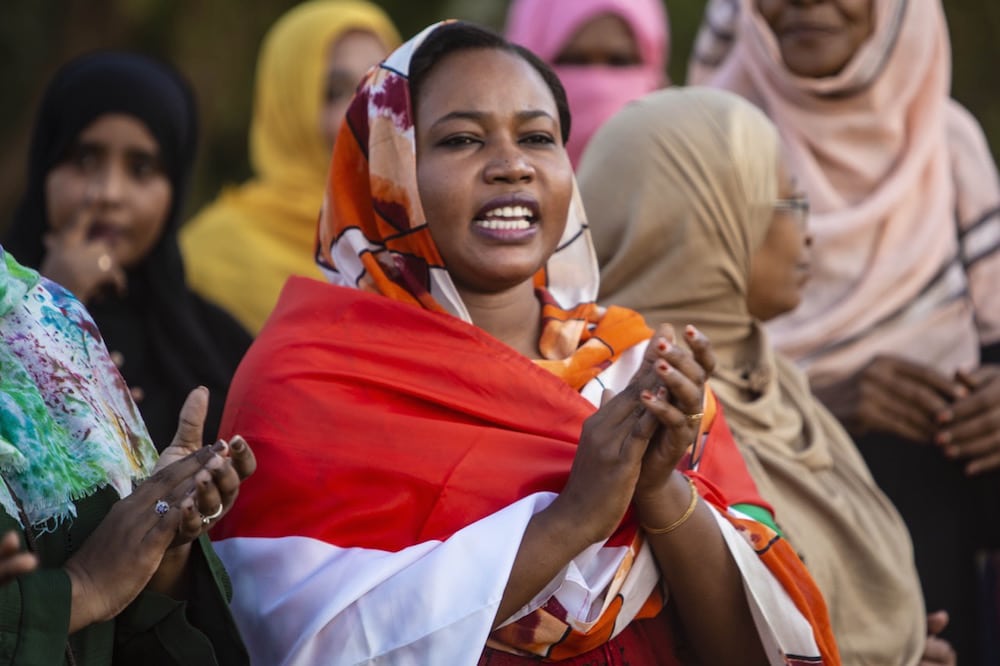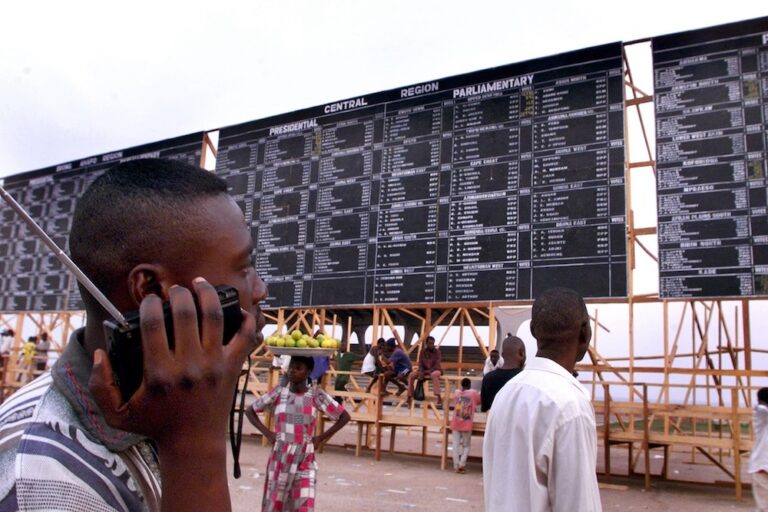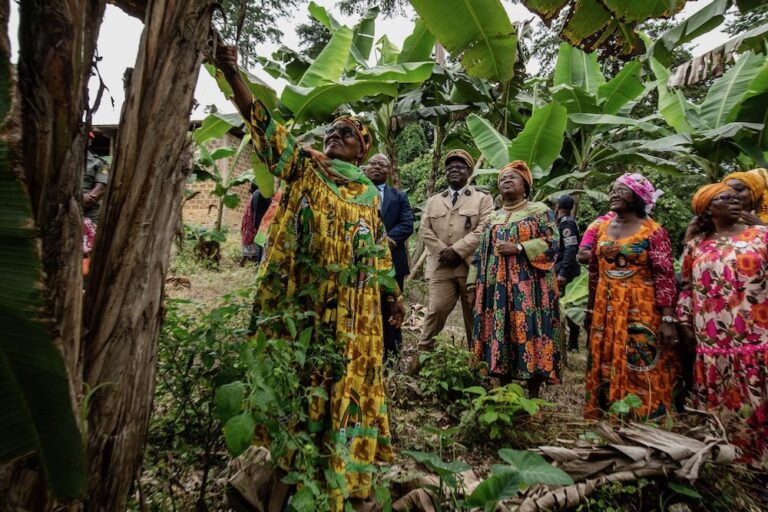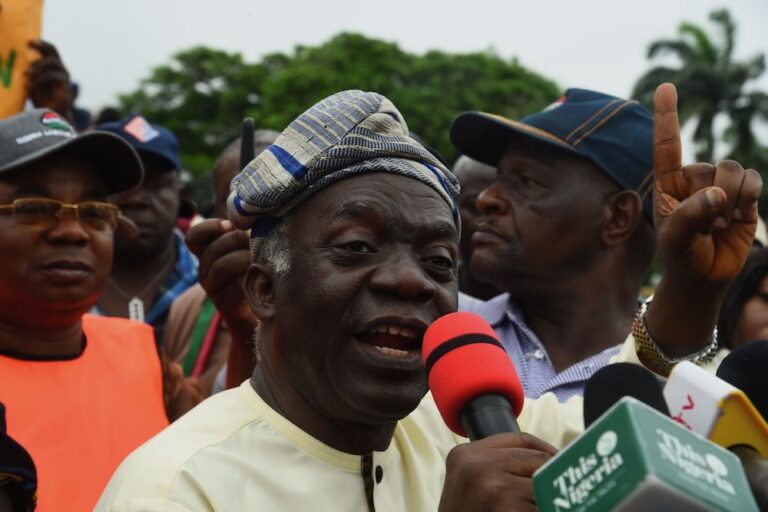October 2021 in Africa: A free expression round up produced by IFEX’s Regional Editor Reyhana Masters, based on IFEX member reports and news from the region. An audio discussion examining the challenges facing Africa when it comes to impunity for crimes against journalists is available here.
October was a busy month for IFEX member Media Foundation for West Africa, who successfully secured the largest gathering of media stakeholders in the region for their annual West Africa Media Excellence Conference and Awards. The day-long conference was a hybrid event, with the main programme taking place in Accra, Ghana, and other guests and speakers also taking part virtually.
This year’s theme was “Misinformation, Digital Media Regulation and Journalism in Africa”.
The conference opened with a keynote address from guest of honour Femi Falana, an internationally renowned Nigerian lawyer and human rights activist, well known for defending the media and securing victories for dozens of journalists in his home country Nigeria and at regional courts. He attained landmark victories against The Gambia at the ECOWAS Community Court of Justice for Gambian journalists Musah Saidykhan and Chief Ebrima Manneh, in separate cases.
In his address, Falana told delegates: “we owe it as a duty, not just to protect and defend journalists, but to also ensure that the mass media, in the face of digital developments, changing technology and dwindling resources, remains on course. This is in the interest of basic freedom, human rights.” He also urged journalists to remain true to their professional ethics.
Panel discussions on the conference theme featured Dapo Olorunyomi, publisher of the Premium Times, Nigeria; Manasseh Azure Awuni, editor-in-chief of The Fourth Estate, Idayat Hassan, Executive Director and Joseph Warungu the former head of BBC Africa News. The second panel discussion, which featured Gbenga Sesan Executive Director of Paradigm Initiative Nigeria, Elias Okwara, Africa Policy Manager, Access Now, Kenya and Dora Boamah Mawutor, Programme Manager, Media Foundation for West Africa, was on regulating digital media without compromising freedom of expression.
The WAMECA conferenced was capped by the awards ceremony which saw Ghanaian Kwetey Nartey and Nigerian Samad Uthman share the coveted West African Journalist of the Year Award.
This is the first time two journalists split the honours since the inception of the award in 2017. It was also the first time a Nigerian journalist has won the ultimate prize.
Rwanda’s constriction of free expression
The arrest of political opponents and yet another YouTuber – Theoneste Nsengimana, who runs Umubavu TV – signals the continuation of the hardline stance the Rwandan government is taking against any form of opposition to government and critics of their policies.
Nsengimana was detained along with five other opposition party activists, just a day ahead of “Ingabire Day,” scheduled for celebration on 14 October by unregistered opposition party Dalfa-Umurinzi. “[Nsengimana] had planned to cover the event and host a discussion on his YouTube channel with Victoire Ingabire, the party’s leader,” reports Human Rights Watch.
They are charged with publishing rumours intended to cause uprising or unrest among the population. As Human Rights Watch explains:
Rwandan law includes overly broad and vague provisions that enable arbitrary limitations on free speech and that violate the right to freedom of expression and media freedom protections under international law. One of the laws being used to curb free speech is the Law on the Prevention of Cybercrimes, which prohibits the publication of “rumours,” punishable by up to five years in prison and a fine of up to three million Rwandan Francs (US$3,000).
Nsengimana’s arrest came just two weeks after YouTuber Yvonne Idamange was fined US$2,000 and sentenced to 15 years in prison for incitement to violence and insurrection, denigrating genocide commemoration artifacts, and spreading rumours. A sum of $6,000 and 30 years jail time was initially sought by the prosecution.
Described as a human rights activist and genocide survivor, Idamange zoned in on the widespread assassinations and disappearances of opposition leaders and government critics, as well as abuses, corruption, and other massacres, allegedly by Rwandan authorities and President Paul Kagame, on her YouTube channel Idamange.
Deutsche Welle has put together a list detailing the “mysterious deaths and disappearances of people critical of Rwanda’s government.”
Soon after she was arrested, back in in February of this year, Rwandans took to the streets in concurrent demonstrations in Brussels, Paris, The Hague, Geneva, Lyon on Paris and Geneva, demanding her release. The demonstrators also demanded the end of the violation of fundamental rights of Rwandan citizens, whether living in the country or in exile.
Deadly protests in eSwatini
The pressure from decades of suppressed freedom of expression and political rights in eSwatini turned into deadly protests that rocked the small mountainous kingdom once more.
In October, dozens of protestors were shot by security forces, who went to the extent of firing at nurses tending to the injured. The military and police were deployed in schools after students also joined the protests.
The violent demonstrations also attracted the attention of regional bloc the Southern African Development Community (SADC), which dispatched a team to try jumpstart dialogue among stakeholders. Although disturbing footage was widely shared on social media of protestors being assaulted, SADC only met eSwatini officials, not other stakeholders. Prior to their arrival, the Swazi government banned demonstrations.
Led by trade unions who filled in the political vacuum due to a ban on political parties, citizens had embarked on a series of demonstrations which started in June, demanding more political rights, and the state’s brutal response included shutting down the internet. According to government figures, 37 people have died in protests since mid-year, while Amnesty International says the death toll is much higher.
The unrest puts the spotlight on King Mswati III’s dictatorial grip on one of Africa’s poorest countries. Expressing his concern, United Nations Secretary General Antonio Guterres reiterated “the importance of enabling the people of Eswatini to exercise their civil and political rights peacefully.”
Social media has opened an avenue for Swazis to freely speak their minds and mobilise protests, but eSwatini has built a reputation of being high-handed with critics of the monarchy. Human rights activists and journalists have been harassed or imprisoned, while those who are able to, often flee the country.
Writing for New Frame News, Musawenkosi Cabe highlighted the plight of journalists in the kingdom, describing how they are censored through ‘cruel and illegitimate detention, torture, and the removal of means to disseminate information to citizens crying – and dying – for it.” He also mentioned how colleagues Magnificent Mndebele and Cebelihle Mbuyise were intercepted, assaulted, detained, and forced to delete their footage when they covered protests earlier in the year.
Sudan experiences yet another coup
On 25 October, Sudan’s military, led by General Abdel-Fattah al-Burhan, effectively took power after announcing that it was pulling out of a shaky civilian-military coalition of the Sovereign Council and declaring a state of emergency. Prime Minister Abdalla Hamdok and his inner circle were detained. The army took over the national broadcaster and immediately instituted an internet and telecommunications blackout. Netblocks says the internet is still blocked as of 3 November 2021.
Pro-democracy campaigners took to the streets to resist what they fear is a return to autocratic rule. During clashes with the military who used live ammunition on protestors, seven people died and dozens were injured, according to reports. Under the cloud of an internet shutdown, journalists Maher Abugoukh and El-Haj Warrag were also detained, while other journalists were assaulted.
Condemnation of the coup was immediate from media rights groups and the international media rights community. The International Press Institute and the Committee to Protect Journalists demanded the release of detained journalists and called on authorities to uphold press freedom.
“Imposing internet shutdowns and blocking access to telephone lines is in violation of international human rights law,” explained Felicia Anthonio, campaigner and #KeepItOn lead at Access Now:
“Shutting down the internet while a military coup is unveiling and protesters are out on the street is a clear sign that someone is trying to cover up something.”
Not long ago, the people of Sudan successfully protested for the removal of three-decades-long leader Omar Al-Bashir in 2019, and hoped that the nation would adopt a path to democracy through the military-civilian council the country. Since then, the nation has been dogged by protests, and the economy has failed all efforts of revival.
In brief
In Nigeria, the executive director of International Press Centre (IPC) Lanre Aregundade called on police and security to look into the disconcerting disappearance of Vanguard Newspaper’s house of representatives reporter Tordue Salem.
On 11 October, Bai Emil Touray was welcomed as the new executive secretary of the Media Council of The Gambia (MCG), during a ceremony at the Gambia Press Union (GPU) offices, where the MCG secretariat is housed. The MCG was established by the GPU in December 2018 as an independent, self-regulatory mechanism for addressing public complaints against the conduct of journalists. It is the result of collaborative efforts between government and civil society actors working for media reform following the end of the Jammeh-era dictatorship.
In Mozambique, four journalists and two camera operators covering protests sparked by a delay in the distribution of COVID-19 relief funds were assaulted by police and had their equipment confiscated. José Junio and Manuel Tadeu from Haq TV, Emerson Joaquim and Osvaldo Sitora of Afro TV, Media Mais broadcaster Celetino Manuel and Leonard Gimo, a reporter with privately owned TV Sucesso, were released following the intervention of MISA-Mozambique and a senior police officer.
The South African National Editors’ Forum (SANEF) expressed their concern at the rise in criminal attacks on journalists covering the country’s municipal elections. An all-women SABC crew were briefly held hostage in a village in Mpumalanga, Eyewitness News reporter Xan Dookey and his colleague Thando Kubheka were physically attacked, and Kunheka’s cellphone was stolen. SANEF appealed to communities “to be the first line of defence for journalists where possible.”
In the recently-released CPJ 2021 Global Impunity Index, Somalia topped the list as the world’s worst country for unsolved killings of journalists. The country has recorded 25 murders between 2011-2021 – the highest number of unsolved killings of journalists in relation to its population. South Sudan comes in at fourth, behind Syria and Iraq, and is one of the countries cited as “perpetuating a cycle of violence against journalists,” due largely to “conflict, political instability, and weak judicial mechanisms.”
If you enjoyed reading this piece, check out our latest edition of Africa Brief, in which IFEX’s Nazarene Njeru & Reyhana Masters look back at how the International Day to End Impunity was marked on the continent, and take a deeper dive into the state of impunity in the region.



